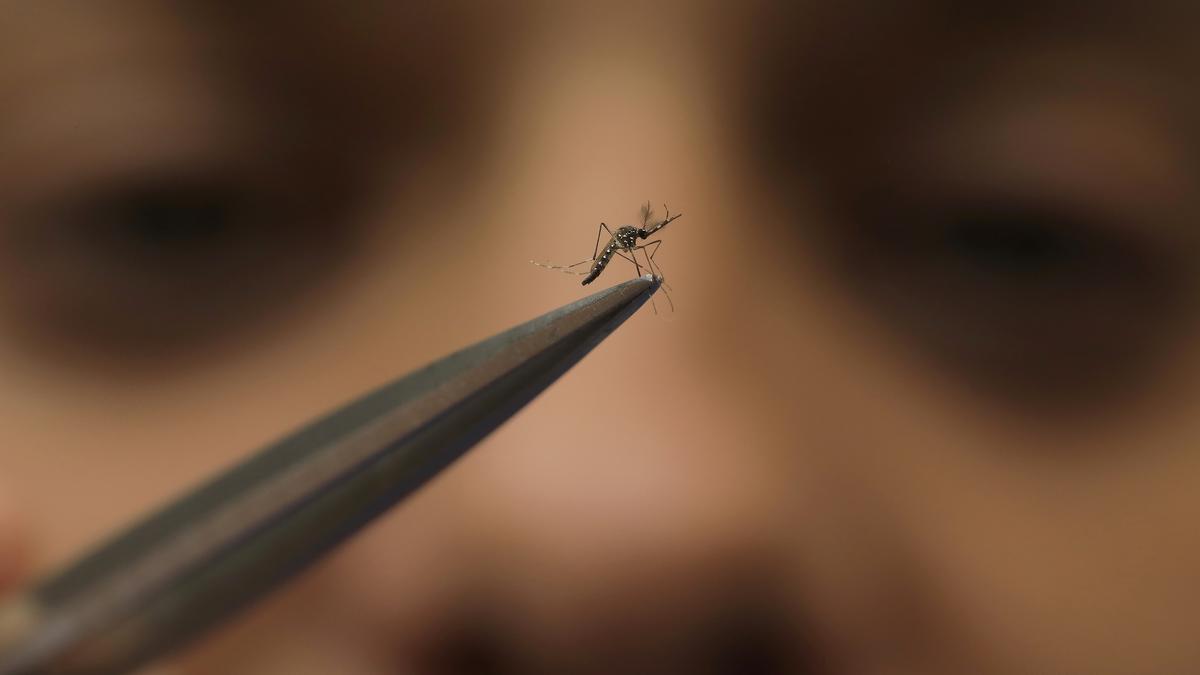Table of Contents
Significance
Wolbachia is a genus of bacteria that has gained significant attention in recent years due to its potential in revolutionizing disease control methods. This bacterium is present in a wide variety of arthropods, including insects, and has unique features that make it an unlikely hero in the fight against certain diseases.
Features
One of the most remarkable features of Wolbachia is its ability to manipulate the reproductive system of its host. It can infect the eggs or sperm of its host organism, ensuring its transmission from one generation to the next. This bacterium can spread rapidly within host populations, making it a powerful tool in disease control efforts.
Objectives
The main objective of utilizing Wolbachia in disease control is to reduce the transmission of vector-borne diseases. These include diseases like dengue fever, Zika virus, and malaria, which are responsible for a significant global burden of illness and mortality. Wolbachia-based interventions aim to suppress the population of disease-carrying insects, ultimately reducing the transmission of these diseases to humans.
Effects
When Wolbachia is introduced into mosquitoes, for example, it can interfere with the reproduction process, resulting in a phenomenon called cytoplasmic incompatibility. This incompatibility reduces the number of viable offspring, potentially leading to a decline in mosquito population. Additionally, Wolbachia can also inhibit the replication of certain pathogens within the mosquito, further reducing the transmission of diseases.
Pros and Cons
Pros:
- Effective and sustainable disease control strategy.
- Potential to reduce reliance on chemical interventions.
- Does not harm the environment or other non-targeted organisms.
- Cost-effective when compared to traditional control methods.
Cons:
- Not applicable to all vector-borne diseases.
- Challenges exist in scaling up and implementing Wolbachia-based interventions.
- Ethical considerations regarding the manipulation of reproductive processes.
Fun Fact
Interestingly, Wolbachia is often referred to as a “good” bacterium. This is because, in addition to its potential in disease control, it has been implicated in providing various benefits to its host organisms. For example, Wolbachia can enhance the resistance of some insects to certain pathogens or parasites, prolonging their lifespan.
Mutiple Choice Questions
1. What is Wolbachia?
a) A type of virus
b) A bacteria
c) A plant species
d) A small animal
Explanation:
Wolbachia is a type of bacteria that is commonly found in the bodies of insects, particularly mosquitoes. It is an intracellular bacterium that lives inside the cells of its host and relies on the host’s resources for survival.
2. How does Wolbachia affect insects?
a) It causes a decline in insect populations
b) It enhances the immune system of insects
c) It improves the reproductive fitness of insects
d) It has no effect on insects
Explanation:
Wolbachia has been shown to have various effects on insects. It can manipulate the reproduction of its host by inducing cytoplasmic incompatibility, which leads to a decline in insect populations. Additionally, it can enhance the immune system of the host, making it more resistant to certain pathogens, and it has also been found to improve the reproductive fitness of some insect species.
3. What is the potential use of Wolbachia in disease control?
a) It can be used to control the spread of malaria
b) It can be used as a biological pesticide
c) It can be used to create genetically modified insects
d) It has no potential use in disease control
Explanation:
Wolbachia has gained attention for its potential use in disease control. It has been proposed as a method to control the spread of diseases like malaria, dengue fever, and Zika virus, as Wolbachia-infected mosquitoes are less capable of transmitting these diseases to humans. Additionally, Wolbachia has been investigated as a potential biological pesticide, as certain strains of the bacteria can affect the reproduction and survival of insect pests.
4. How does Wolbachia manipulate the reproduction of its host?
a) It directly kills the host’s reproductive cells
b) It alters the host’s reproductive organs
c) It induces cytoplasmic incompatibility in the host
d) It has no effect on the host’s reproduction
Explanation:
Wolbachia manipulates the reproduction of its host through a phenomenon called cytoplasmic incompatibility. This means that when a Wolbachia-infected male mates with an uninfected female or a female infected with a different strain of Wolbachia, the resulting fertilized eggs fail to develop properly, reducing the reproductive success of the host. This manipulation ensures that the infected strain of Wolbachia is passed on to the next generation.
5. What is the significance of Wolbachia in the field of evolutionary biology?
a) It plays a role in the evolution of insect species
b) It promotes the evolution of antibiotic resistance
c) It has no significance in evolutionary biology
d) It inhibits the process of natural selection
Explanation:
Wolbachia has significant implications in the field of evolutionary biology. It has been shown to influence the reproductive behavior of insect hosts, leading to the evolution of new insect species. Additionally, Wolbachia can affect the genetic diversity and structure of populations, thus playing a role in the evolution of insect species. By manipulating the reproduction of its host, Wolbachia can also impact the genes passed on to the next generation, potentially influencing the process of natural selection.
Brief Summary | UPSC – IAS
Wolbachia, a microscopic bacterium found in many insects, is gaining attention for its potential to combat mosquito-borne diseases such as dengue fever and Zika virus. By infecting mosquitoes with Wolbachia, researchers have discovered that the bacterium can hinder the replication of viruses, making the insects less capable of transmitting diseases to humans. Efforts are now underway to distribute Wolbachia-infected mosquitoes in countries affected by these diseases, in hopes of reducing their spread. Although further research and testing are needed, Wolbachia could become an unexpected ally in the fight against mosquito-borne illnesses.




